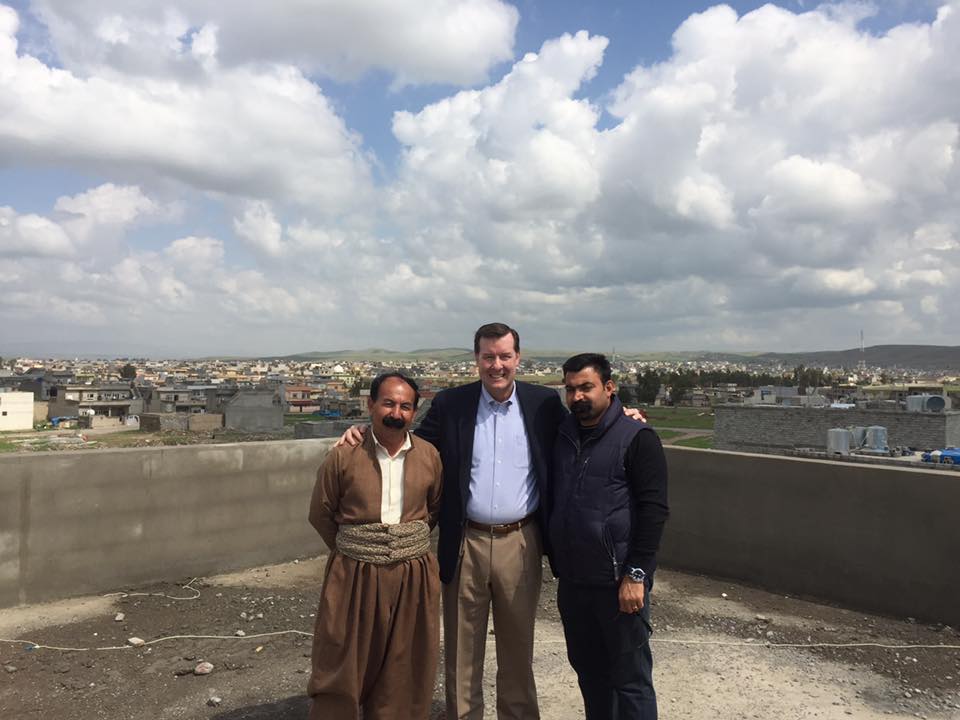IGE’s The Cradle Fund in Erbil – March 2016
24 March
Just a beautiful moment on Maundy Thursday in Erbil…we are with Gewargis III, Catholicos Patriarch of the Assyrian Church of the East. Joining us is the Chinese delegation that IGE and Assyrian Aid Society have facilitated: Liu Peng, Vice Chair of the World Economic Forum’s Council on the Role of Faith, and Chinese Pastors Abraham and Job. Pictured is an Assyrian stone monument, dated 782 AD, found in Xi’an, central China the birthplace of Liu Peng that describes the basic tenets of the “Luminous Religion.” In other words, the Christian faith was accepted as integral to Chinese society. The Patriarch has been to China, showing us his favorite church in Xi’an, very near to where Liu Peng grew up whose architecture demonstrates the principle of acculturation without accommodation. We are here this Easter to find out how the global body of Christ might serve all those suffering at the hands of ISIS through the suffering Church.

The Patriarch opened the conversation by thanking IGE for its love for the people of the land, and for our work to find a way to keep Christianity in the place of its birth. “The thing we suffer most is not having hope for a future. Everyone attacks everyone and we Christians are in the middle of it. If it continues, we will lose our heritage.”
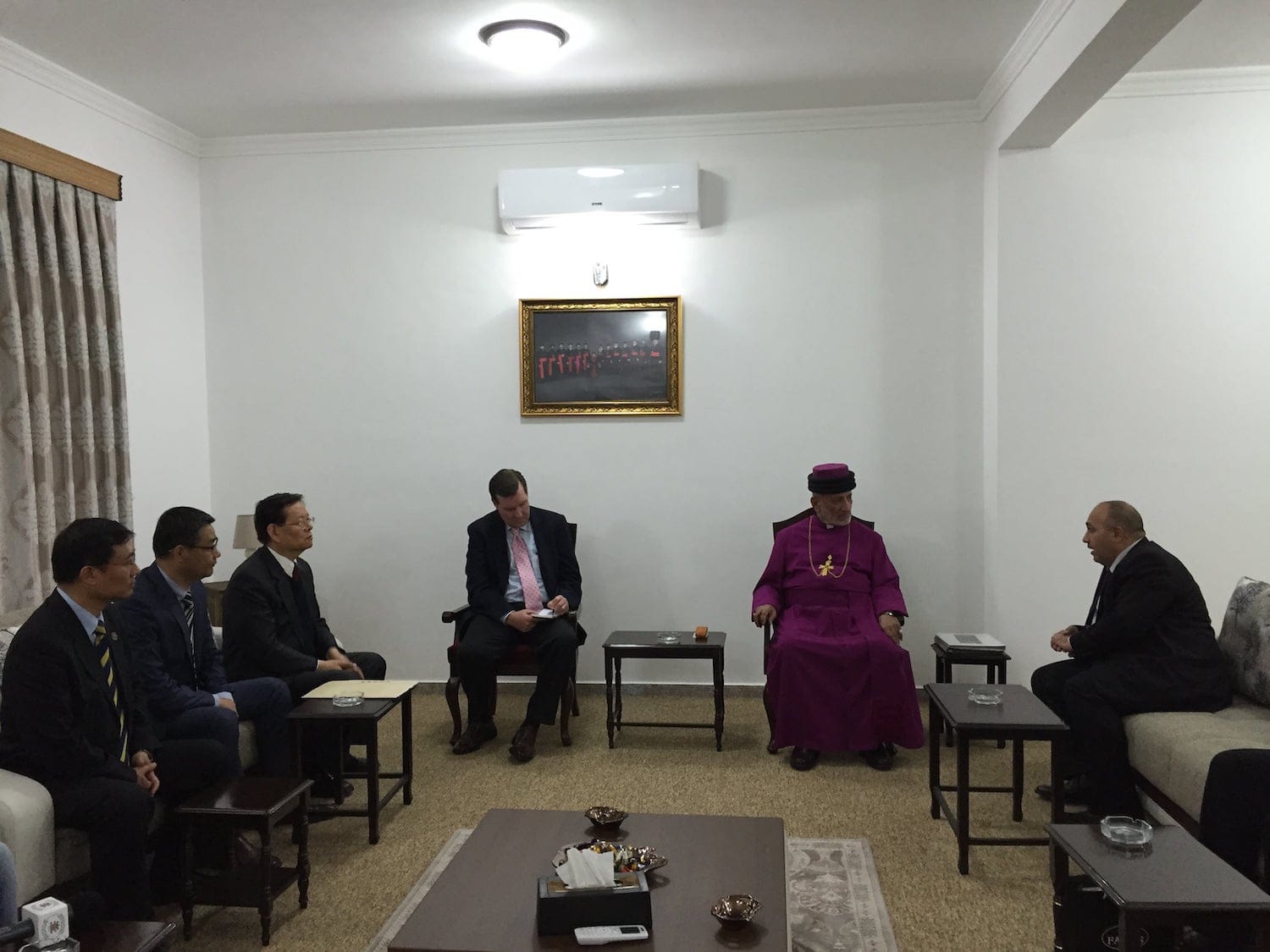
Pastor Abraham said that the “Church in China also had a long time suffering and we are deeply sympathetic to our brothers and sisters in Christ here because we know what it is like. We are very concerned and praying for you. We appreciate this opportunity to listen and learn from you in order to serve you. We want you to know that we are one Body and that we suffer together; and if it is God’s will and the doors open, we want to serve the people here for a long time.”
Pastor Job added that “during our worst suffering in China, we received support from all over the world. We want to bring the love of Jesus through practical aid. We are pastors with humanitarian experience having help coordinate the response of churches and volunteers across China to the 2008 earthquake in Sichuan.”

Patriarch Gewargis III said that there are three needs:
-
Give humanitarian aid to those who have fled ISIS;
- Encourage strong and good governance; and,
- Provide a concrete plan for the future it gives people hope and faith, especially the youth, to stay.
The Patriarch shared two Assyrian-Chinese stories that demonstrate the Body of Christ across time and space. The first Assyrian missionaries went to China in 655 AD. Their motto was to share the faith by feet, not force. They served the poor and because of their faith, performed miracles, healing many. The Tang Dynasty Emperor at that time heard of these things and asked them to come to his court. Convinced that they were Godly people, the emperor gave permission to build Assyrian churches anywhere in China (e.g., the Xi’an monument).
In 1281, a Chinese Bishop of the Assyrian Church in China, Marco, came to Baghdad. The Patriarch happened to die and Marco was consecrated as the Patriarch of the Assyrian Church, taking the name Mar Yahballaha III. Two different peoples and places, already connected by the love of Christ, reunited.
Amen.
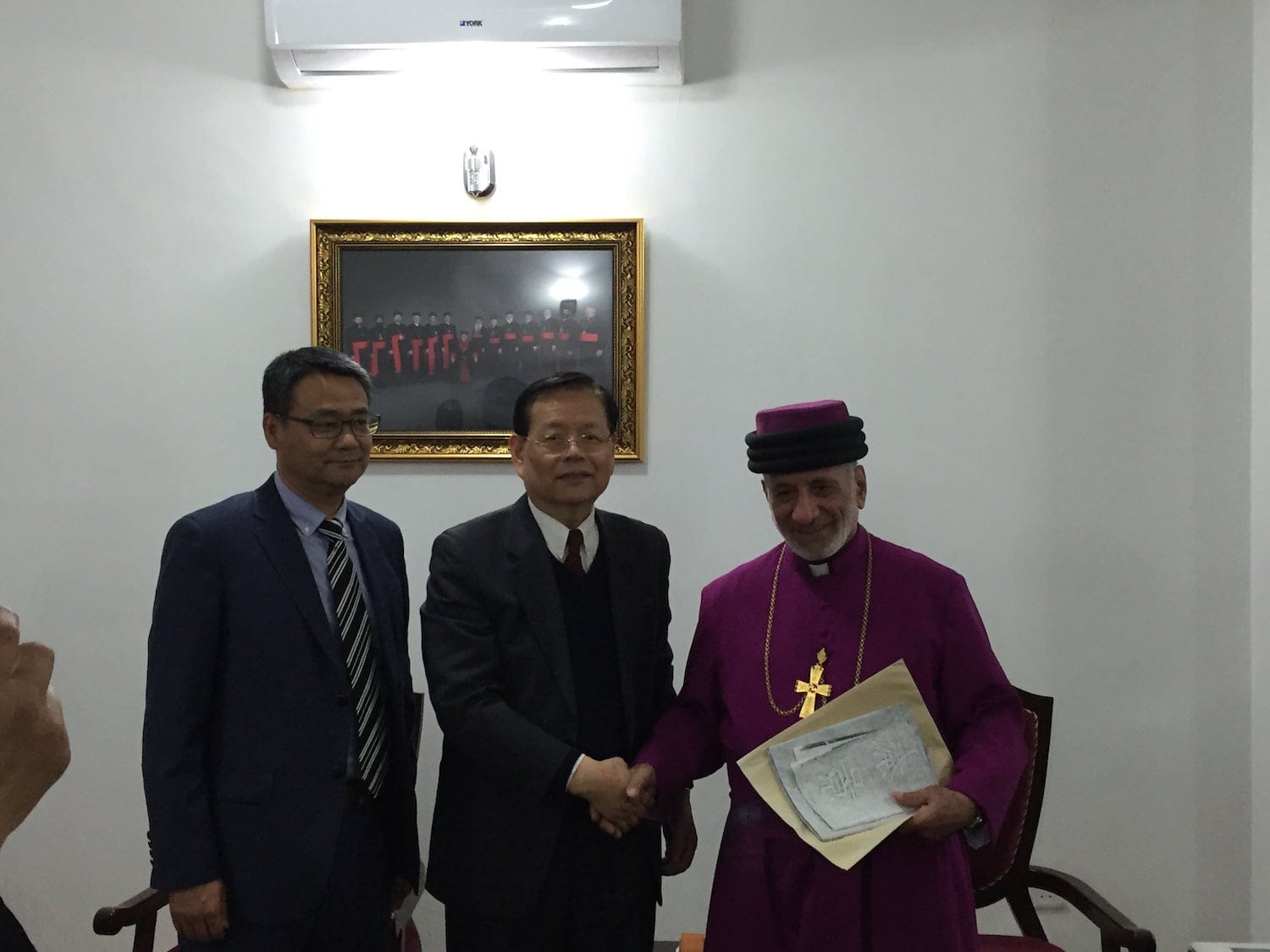
26 March
We simply asked to worship with them…these beautiful Assyrians placed us at the altar as they worshipped God in Aramaic. The privilege of a lifetime.
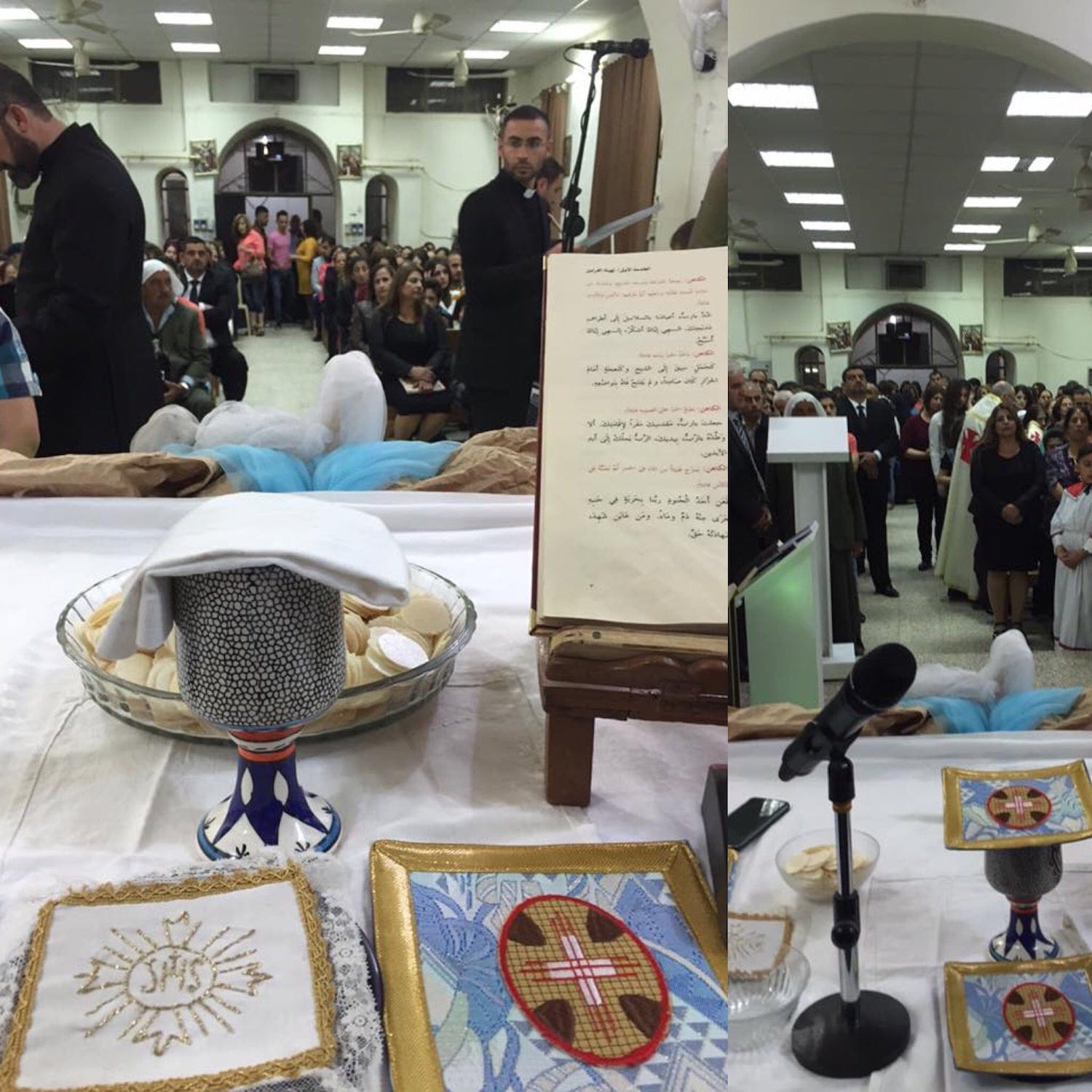
27 March
Easter Morning, Erbil! He is risen indeed!
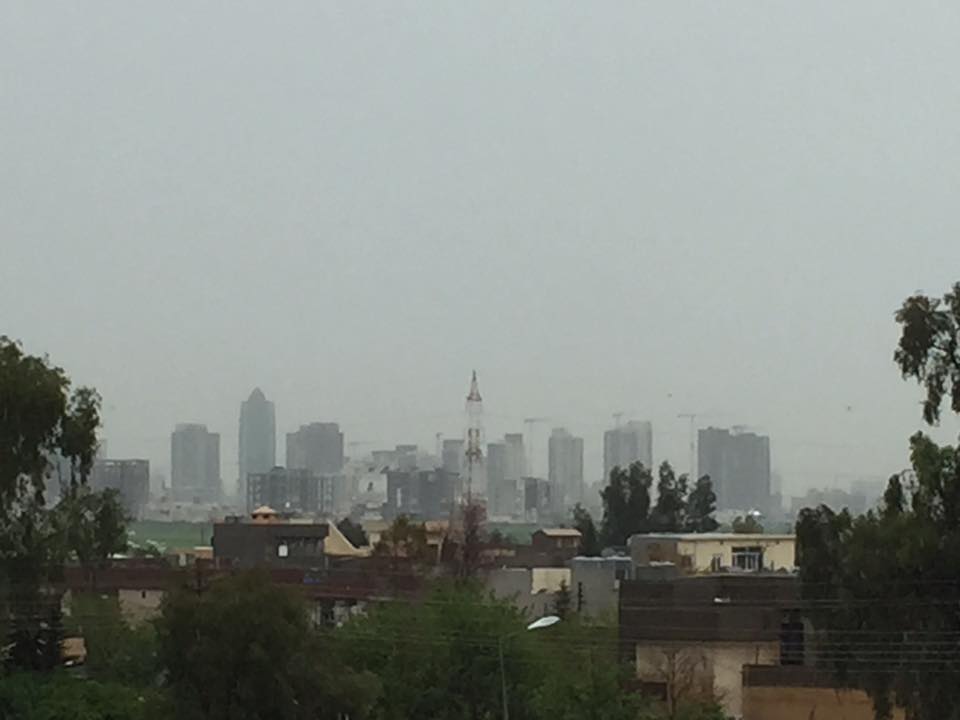
Worshipping at St. John’s in Ankawa District, Erbil…
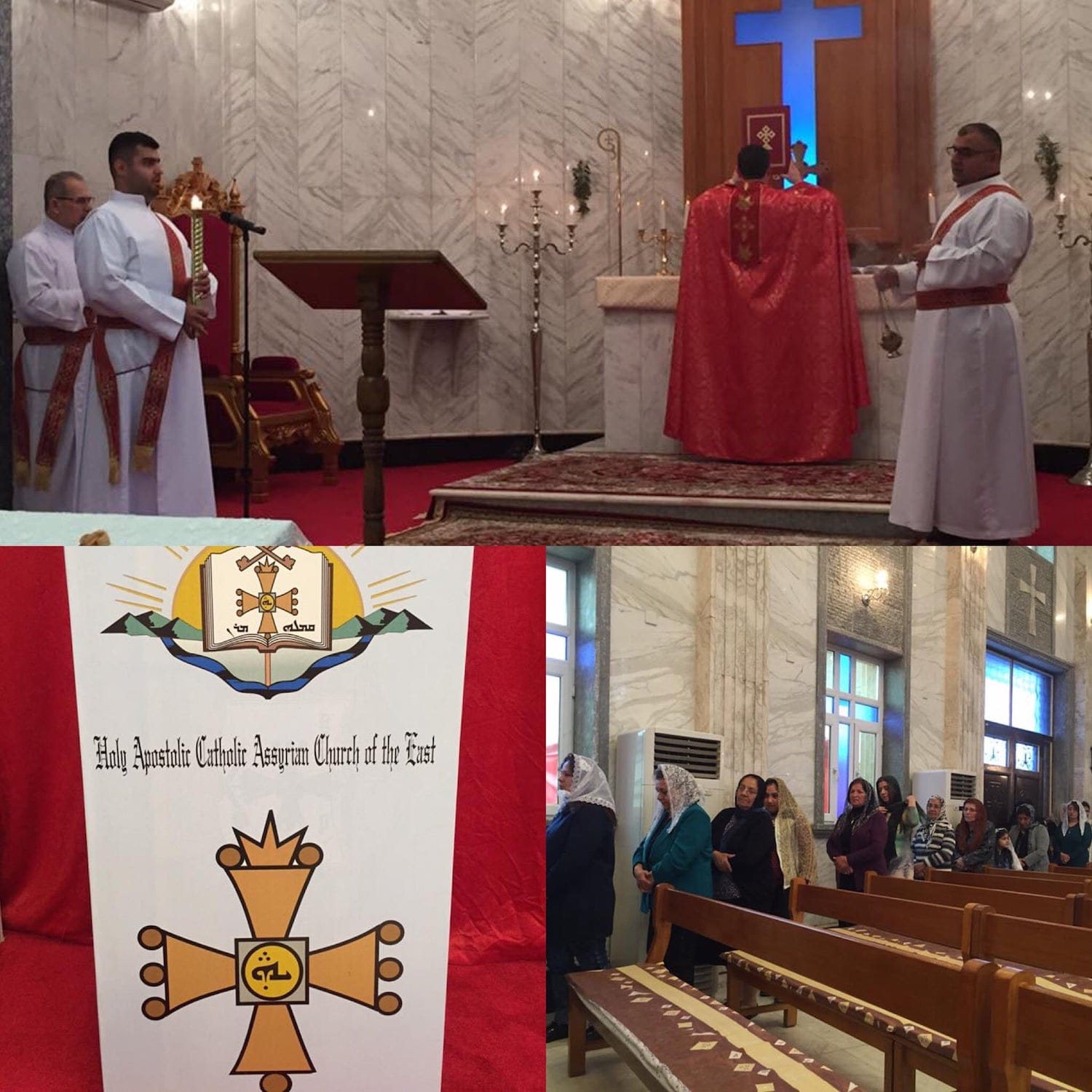
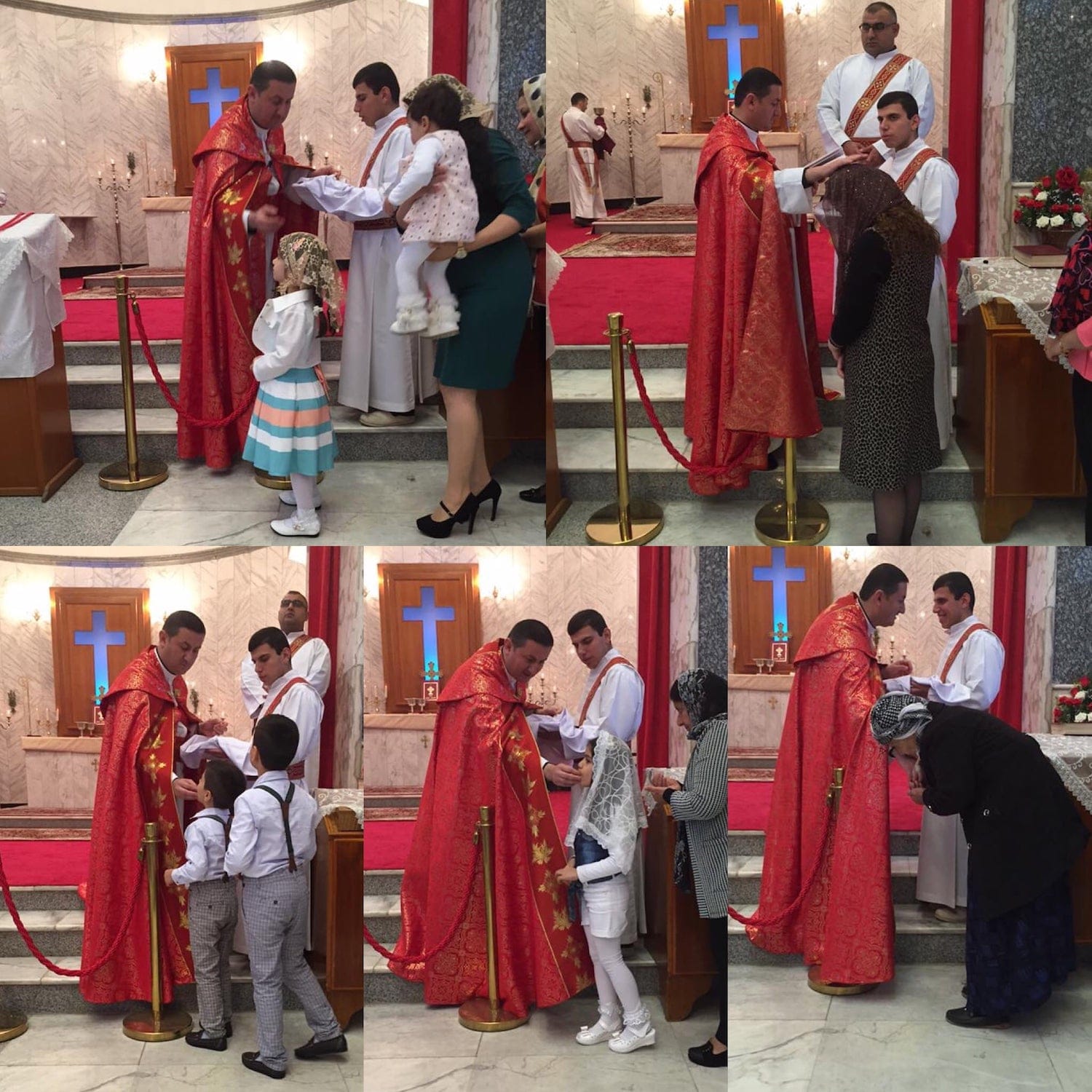
With Fuad, formerly of the Ka’kai faith but now a pastor. His church is working to serve 10,500 of the Ka’kai who have fled ISIS. In particular, they are building a “House of Hope” as a community center for this very small religious minority. The Ka’kai also serve on the front lines against ISIS, within eyesight of their villages on the Nineveh Plain. Helping Pastor Fuad and the Ka’kai is most noble indeed.
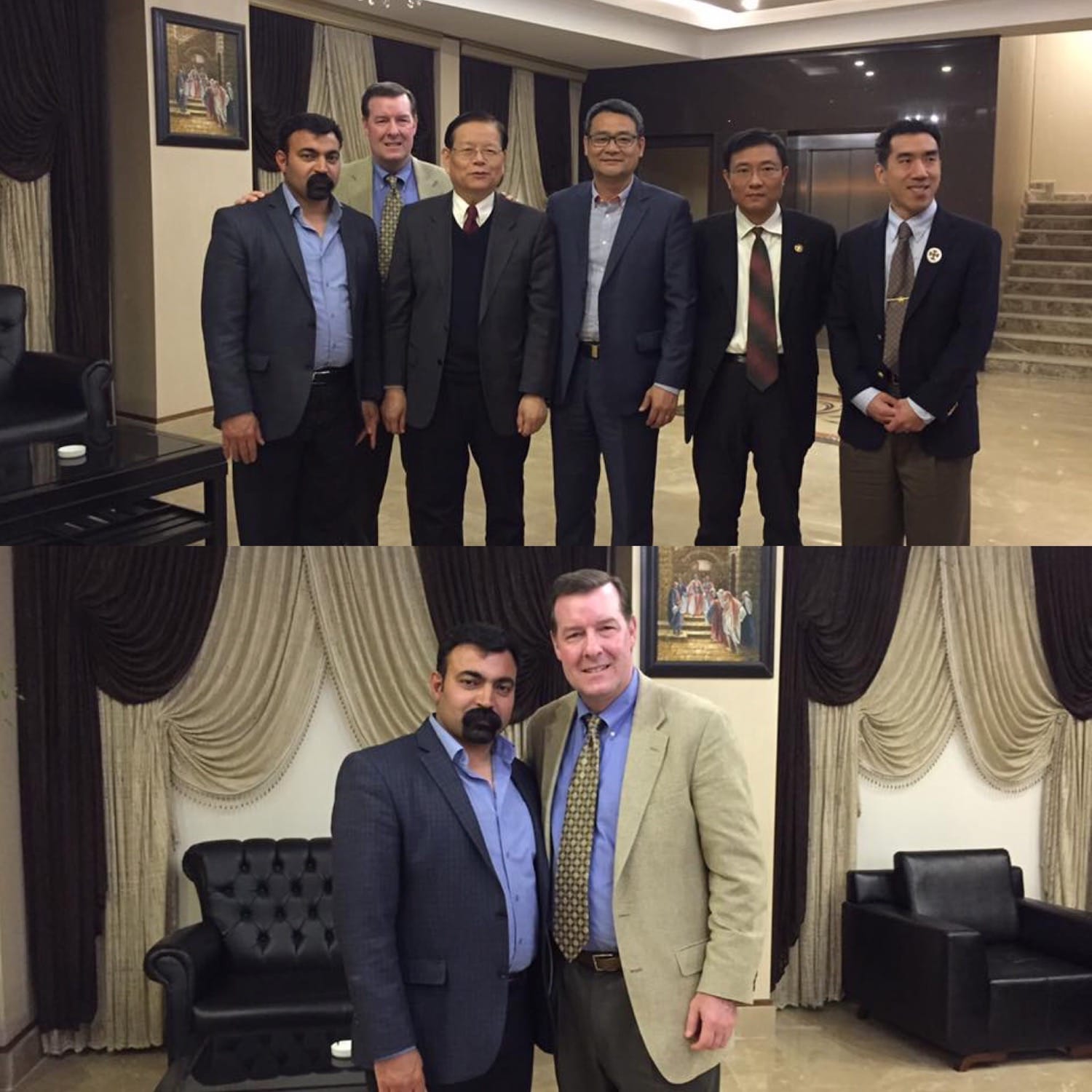
28 March
Always a warm and wide-ranging conversation with the Kurdish Foreign Minister, Falah Mustafa Bakir, who had just returned from China as part of the first-ever KRG delegation there. As we approach the 100th anniversary of Sykes-Picot, he had some particularly wise insights: “If you don’t address root causes then you will have multiple crises that become a mega-crisis. Insisting on a failed international boundary system in Iraq-Syria only brings more failure. If it didn’t work for 100 years, why would it work for the next 100 years? Czechoslovakia used to be one country but now they are two; and, as I understand it, their cabinets meet to discuss issues of common concern…to have sustainable solutions we must account for the bottom-up. Top-down without bottom-up will never be implemented. We are all suffering from what was drawn arbitrarily and for it to be maintained is absurd…we must move beyond aid to the creation of businesses and jobs.”
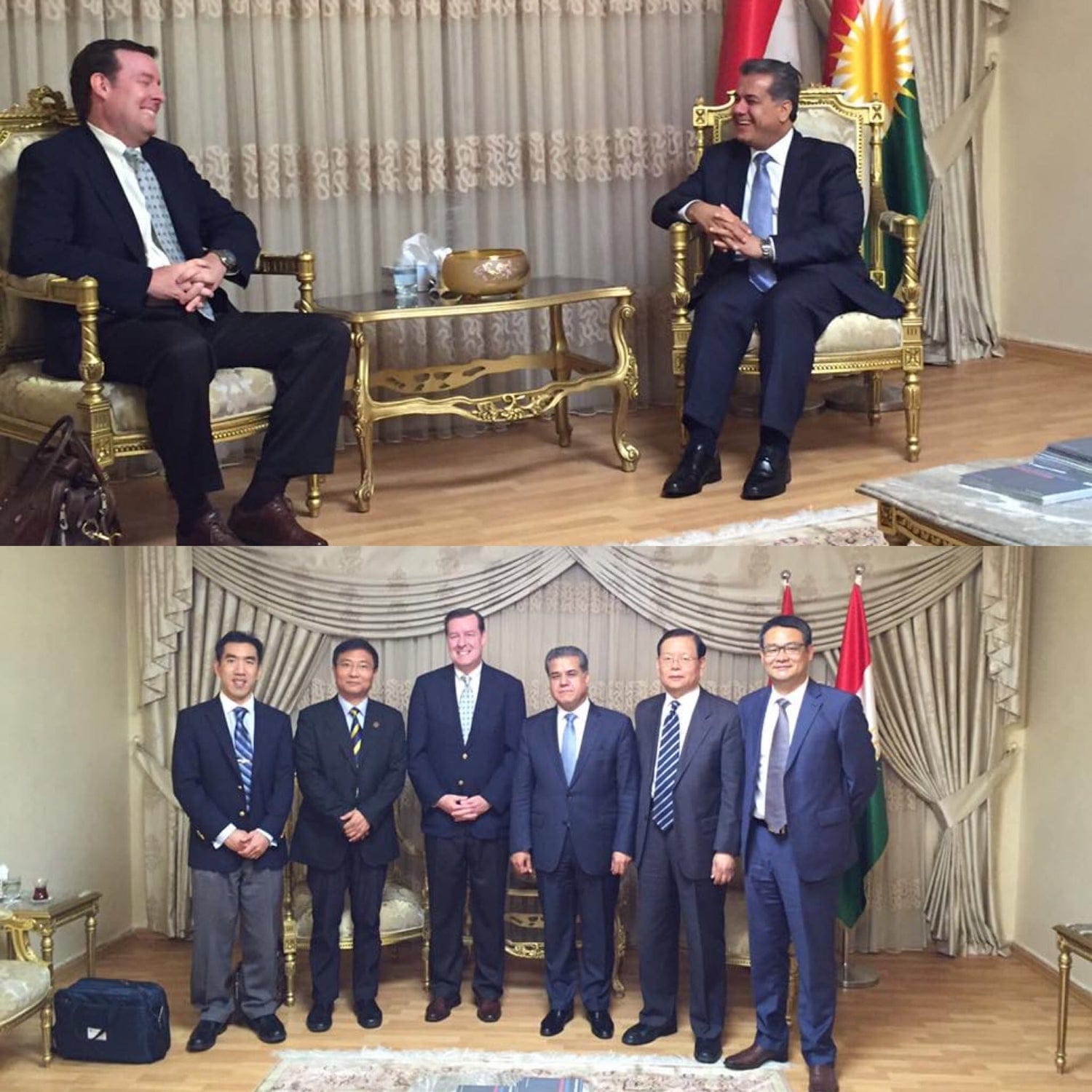
With the astute Khalid Jamal Alber, the General Director of Christian Affairs at the Ministry of Religious Affairs. Easter Monday is a holiday for Christians here but he still received us at his home. His daughter, like mine, is about to turn three. We had a great brainstorm session about how to create jobs and homes for those who have fled ISIS.
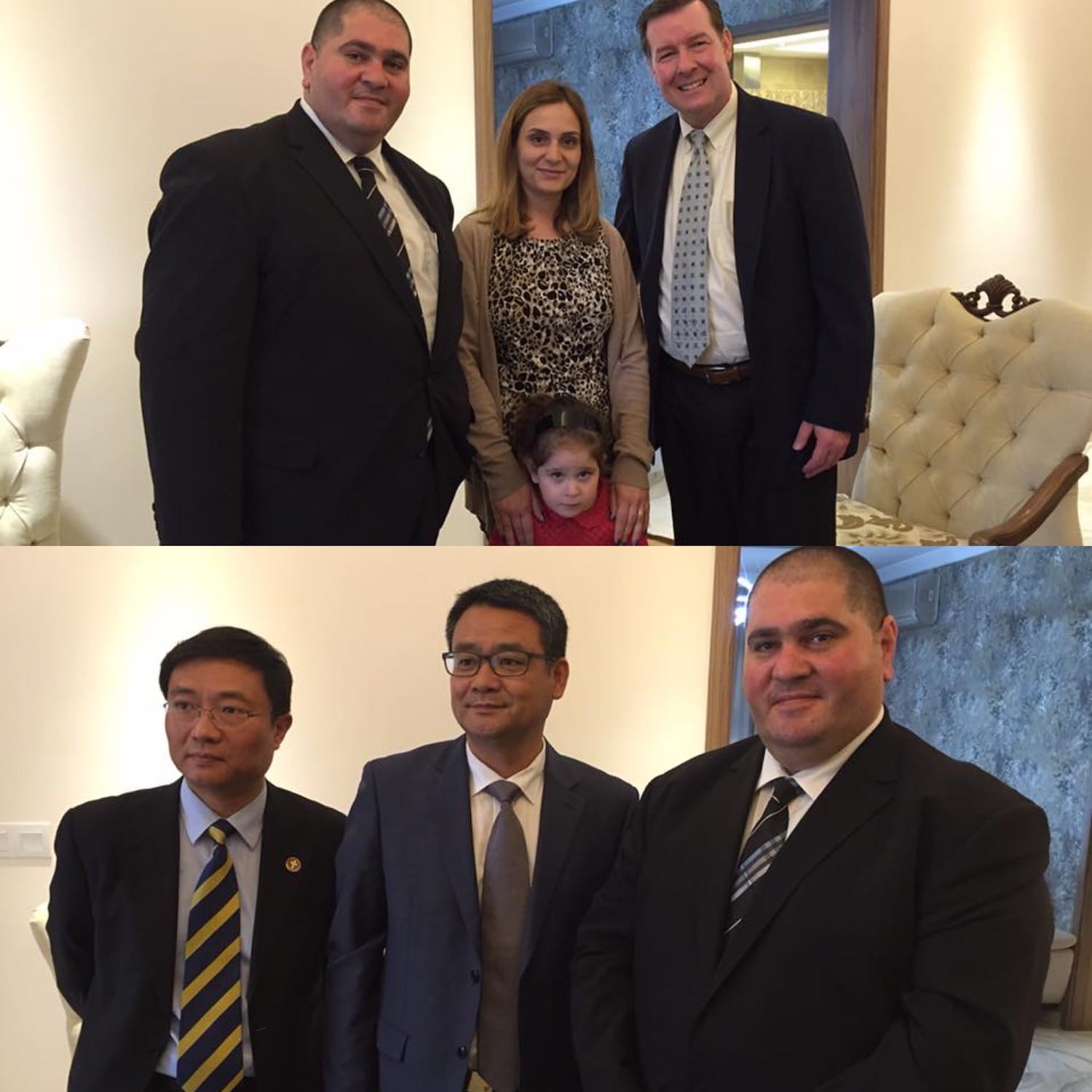
At the department of NGOs with Director Akram Jamo, who told us of the top 5 needs for refugees and IDPs in Kurdistan: 1) co-existence and tolerance, after ISIS; 2) unemployed youth; 3) Trauma care for children and women; 4) care for the environment, especially water; and, 5) capacity-building for local NGOs: “train and work through them, together.”
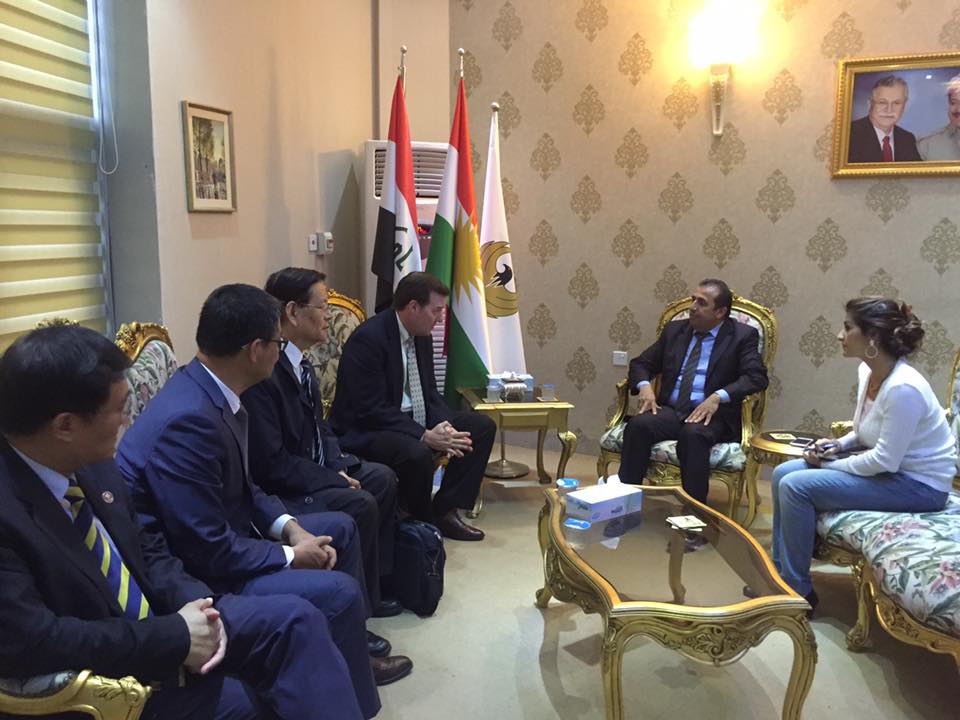
I always appreciate and need the wisdom of the Dominican Sisters. Their whole person approach, from spiritual formation to education, is exactly right. We love them dearly.

29 March
Great to spend some more time with the Ka’kai in Kawergosk. Having fled ISIS, these 40 families live here under the leadership of Muqtar Hamid (to my left). He is one of seven brothers from the village of Gazakhan on the Nineveh Plain, now occupied by ISIS. Two of Hamid’s brothers are captains in the Peshmerga (the Kurdish Army). They serve on the frontline, unpaid, within eyesight of ISIS and their home village. This home in Kawergosk will soon provide hope to the community: from simply having a place to meet, to vocational training.
